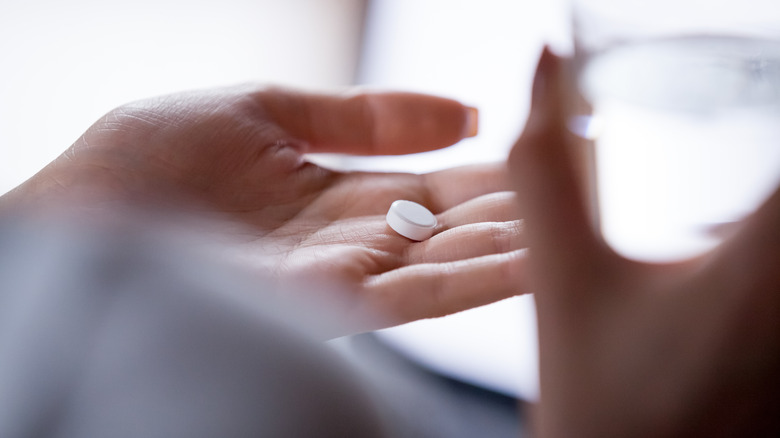How Your Body Changes When You Start Taking Water Pills
Water pills, also called diuretics, are most commonly used to treat high blood pressure (via Harvard Health Publishing). They work by helping the kidneys remove sodium and extra water from the body. This in turn decreases blood volume so the heart doesn't have to work as hard to pump blood to the rest of your body, thereby lowering blood pressure. Diuretics are also prescribed for people with heart failure as the condition often leads to weight gain from the retention of fluids. Additionally, water pills can be used to help prevent and treat liver failure, kidney disorders, such as kidney stones, and edema, or tissue swelling (via Mayo Clinic).
There are three main types of water pills, each affecting a different part of the kidney. They're called thiazide diuretics, loop diuretics, and potassium-sparing diuretics. Your healthcare provider will decide which diuretic is best for you, depending on what condition is being treated. Sometimes doctors will prescribe different diuretics, which can be taken together, as well as with other medications (via WebMD).
Side effects of water pills
Diuretics are generally considered safe. Perhaps unsurprisingly, taking water pills leads to more frequent urination (via Harvard Health Publishing). Other side effects can include fatigue, lightheadedness, dizziness, headaches, dehydration, changes in bowel movements, muscle cramps, and gout, per Healthline. Some men may also experience erectile dysfunction.
Certain types of diuretics can also deplete potassium levels. If you're taking these kinds, your doctor will instruct you to eat more potassium-rich foods like bananas, sweet potatoes, spinach, and lentils, and also limit your salt intake. Potassium-sparing diuretics are available for people at risk of low potassium (via Healthline). However, potassium-sparing diuretics do not reduce blood pressure as much as other water pills, so your healthcare provider will likely also prescribe another medication to help do the job.
While rare, water pills can sometimes cause serious side effects. These include irregular heartbeat, an allergic reaction, and kidney failure. If you have any concerns while taking diuretics, talk to your doctor.


